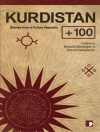With a new introduction by Francine Prose and stunning original artwork by Eko, the Restless Classics edition of Frankenstein brings Mary Shelley’s paragon of horror vividly back to life—published to coincide with the two-hundredth anniversary of the infamous night of its creation.
A towering masterpiece of gothic fiction, Mary Shelley’s Frankenstein: or, the Modern Prometheus birthed the horror and science-fiction genres and spawned countless cultural offspring. Amid the pervasive images of Boris Karloff’s flat-headed, bolt-necked monster, it’s easy to forget how radical, insightful—and, yes, terrifying—the book is on its own terms.
The would-be Prometheus of the book’s title is the brilliant Swiss scientist Victor Frankenstein, whose studies in natural philosophy and chemistry (fields much brooded over in Shelley’s day) lead him to become obsessed with building a being out of dead body parts and bringing it to life. But when he is miraculously successful, Victor is horrified at his creation, and the monster escapes into the night. Given life and enough reason to deduce his own terrible loneliness, Frankenstein’s creation turns to violence and, soon enough, vengeance upon his creator.
Frankenstein is the second book in the Restless Classics series: interactive encounters with great books and inspired teachers. Find out more at www.restlessbooks.com/classics.
O autorze
Mary Wollstonecraft Shelley (1797 – 1851) was an English novelist, short story writer, dramatist, essayist, biographer, and travel writer, best known for her Gothic novel Frankenstein: or, The Modern Prometheus (1818). She also edited the works of her husband, the Romantic poet and philosopher Percy Bysshe Shelley. Her father was the political philosopher William Godwin, and her mother was the philosopher and feminist Mary Wollstonecraft. In 1816, the couple famously spent a summer with Lord Byron, John William Polidori, and Claire Clairmont near Geneva, Switzerland, where Mary conceived the idea for her novel Frankenstein. Her novels include Valperga (1823), Perkin Warbeck (1830), The Last Man (1826), Lodore (1835), and Falkner (1837).Francine Prose is the author of twenty works of fiction. Her novel A Changed Man won the Dayton Literary Peace Prize, and Blue Angel was a finalist for the National Book Award. Her most recent works of nonfiction include the highly acclaimed Anne Frank: The Book, The Life, The Afterlife, and the New York Times bestseller Reading Like a Writer. The recipient of numerous grants and honors, including a Guggenheim and a Fulbright, a Director’s Fellow at the Dorothy and Lewis B. Cullman Center for Scholars and Writers at the New York Public Library, Prose is a former president of PEN American Center, and a member of the American Academy of Arts and Letters and the American Academy of Arts and Sciences. Her most recent book is Lovers at the Chameleon Club, Paris 1932. She lives in New York City.












